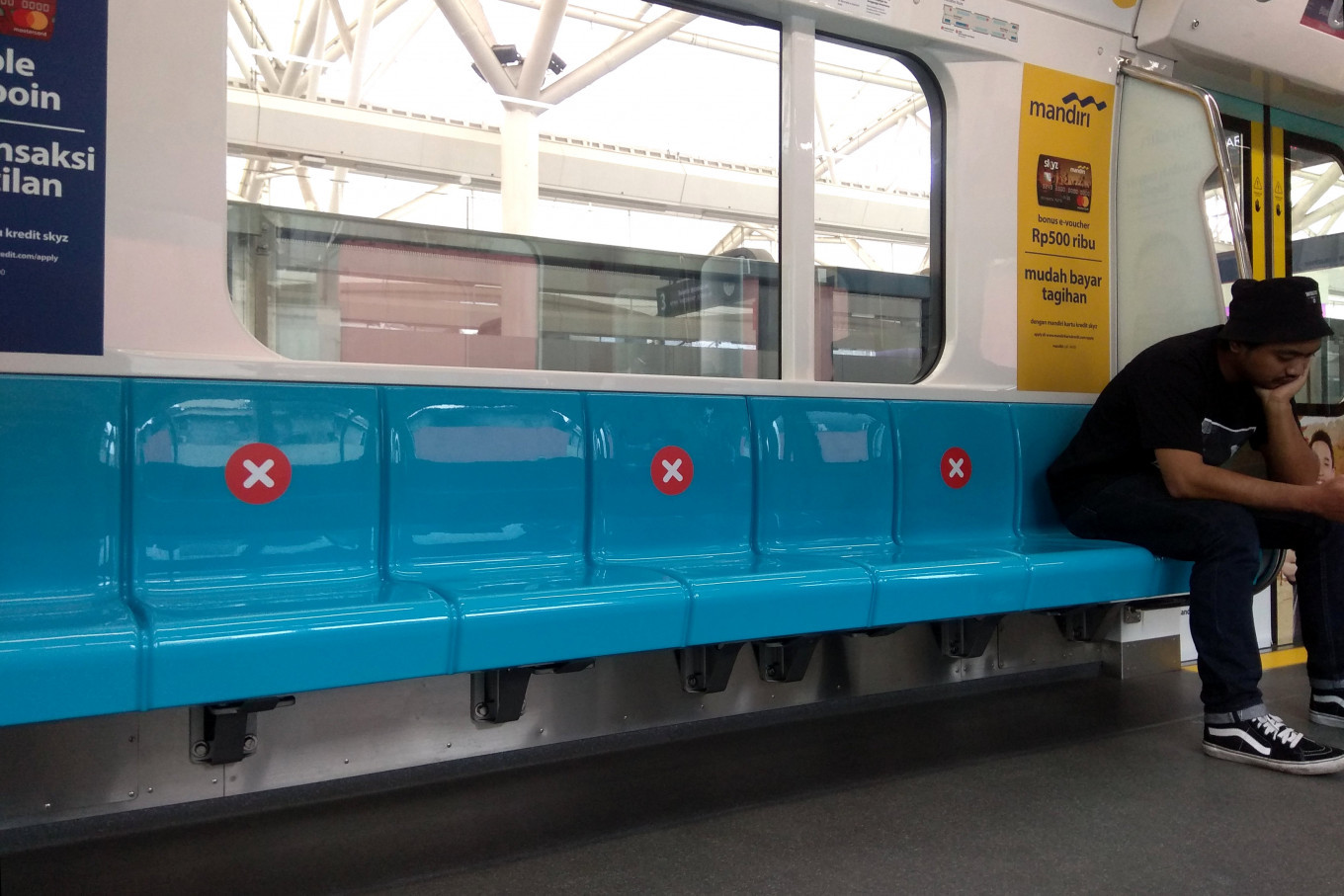Popular Reads
Top Results
Can't find what you're looking for?
View all search resultsPopular Reads
Top Results
Can't find what you're looking for?
View all search results'I've started talking to stray cats': People struggle to stay sane in self-isolation
The Indonesian Clinical Psychologists Association (IPK) has found that many people feel stressed over the lack of the simplest aspects of daily normalcy, such as wearing shoes, putting on make-up or hanging out with friends.
Change text size
Gift Premium Articles
to Anyone
S
taying at home and limiting one’s interaction with others is pivotal to curb the spread of the highly contagious COVID-19 disease. But while some Indonesians seem to cope well with physical distancing, others find weeks of living in self-isolation hard.
For Indiana Malia, 27, a reporter on a local news portal in Jakarta, being mobile and working outdoors had been daily routine until last month, when her office instructed employees to work from home, in line with government instructions.
The past three weeks have been hard for her as she had to hole up and work in her small rented house in West Jakarta.
“It was so stressful that the other day I found myself starting to talk to stray cats in my neighborhood,” Indiana said on Friday.
As a journalist, she needs to follow the latest COVID-19 developments, but the constant stream of grim news and her limited mobility have affected her well-being. “But what can I do; that’s my job,” she said.
“Now, during the weekend, I cut off everything related to work and the pandemic. I simply enjoy my days off, and Korean drama series has been my distraction of late,” she said.
The chairwoman of the Indonesian Clinical Psychologists Association (IPK) in Jakarta, Anna Surti Ariani, said extrovert people and introverts tended to respond differently to long-term self-isolation.
Certain factors, such as daily and work habits, as well as the surrounding environment and support system like family played an important role in determining the level of psychological distress someone had when practicing physical distancing, she said.
Read also: People with bipolar disorder seek strength amid social distancing
The association found that many people were feeling stressed for missing even the simplest aspects of daily normalcy, such as wearing shoes, putting on make-up or hanging out with friends.
“People in Jakarta in particular are more anxious,” Anna said on Sunday. “Some are afraid of getting the virus. Some know someone who has died of the disease. Some cannot visit friends of family members who have fallen ill with the disease. All of these create anxiety and guilt.”
Jakarta is now a COVID-19 hot spot with 1,369 confirmed cases and 106 deaths as of Tuesday afternoon.
The Health Ministry approved on Tuesday the Jakarta administration's proposal to implement large-scale social restrictions (PSBB) in the capital, the first region in the country to apply such a measure to tackle the disease.
Read also: Stay safe, stay sane: How to mind your mental health amid COVID-19 pandemic
People living outside Jakarta and having practiced physical distancing since March also feel overwhelmed and disconnected.
Chris Nugraheni, 26, a teacher in Semarang, Central Java, said that being unable to teach her students in the classroom and living away from her husband and family made her feel lonelier amid the pandemic.
Chris’ husband lives and works in Pasuruan, East Java, while most of her family members live in Sleman regency, Yogyakarta.
Although she calls them every day, she said she started to develop cabin fever while living alone in her quiet rented room in Semarang in the midst of the outbreak.
“It is hard to work from home every day. I’m not used to spending most of my time sitting in front of my laptop to prepare online lessons for my students. I miss teaching my students, I miss meeting people directly,” she said.
Living in self-isolation is more challenging for Chris, because she is nine-weeks-pregnant with her first child. “I get tired more easily and have this constant feeling of nausea. […] But I have to take care of myself, so I still go out to restock food and over-the-counter medicine.”
IPK’s Anna said psychologists in the capital had seen an increase in demand for mental health consultation during the COVID-19 outbreak.
The association, in collaboration with more than 80 psychologists, offers free online consultation sessions from Monday to Friday for people after they register and fill out an online form.
The consultation will use video communication to connect clients with psychologists.
“Our team consists of mental health professionals, and they have been screened and trained to assist people during this pandemic,” Anna said. “Last week alone, we helped 131 people.”
Anna said that people who started to feel depressed in self-isolation should start to identify what changes to daily activities affect their emotions and distance themselves from anything that makes them feel overwhelmed.
“Once in a while, people should also stay away from their mobile phones and social media and take a break from consuming news. They should instead start enjoying their time and embrace the moment,” she said.
In West Java, the province hardest hit by coronavirus in the country after Jakarta, authorities are working with a team of volunteers, psychologists and psychiatrists from the Bandung Institute of Technology (ITB), Padjajaran University and some hospitals to offer free online counseling for people experiencing anxiety during the pandemic.
The spokesman of the team, senior psychiatrist Teddy Hidayat, said psychosocial intervention during the pandemic was important to reduce anxiety and stress and keep the immune system strong.
He urged people practicing physical distancing to keep in touch with their families and friends, particularly through video or phone calls, because oral communication rather than text messages helped people feel more connected with others.










